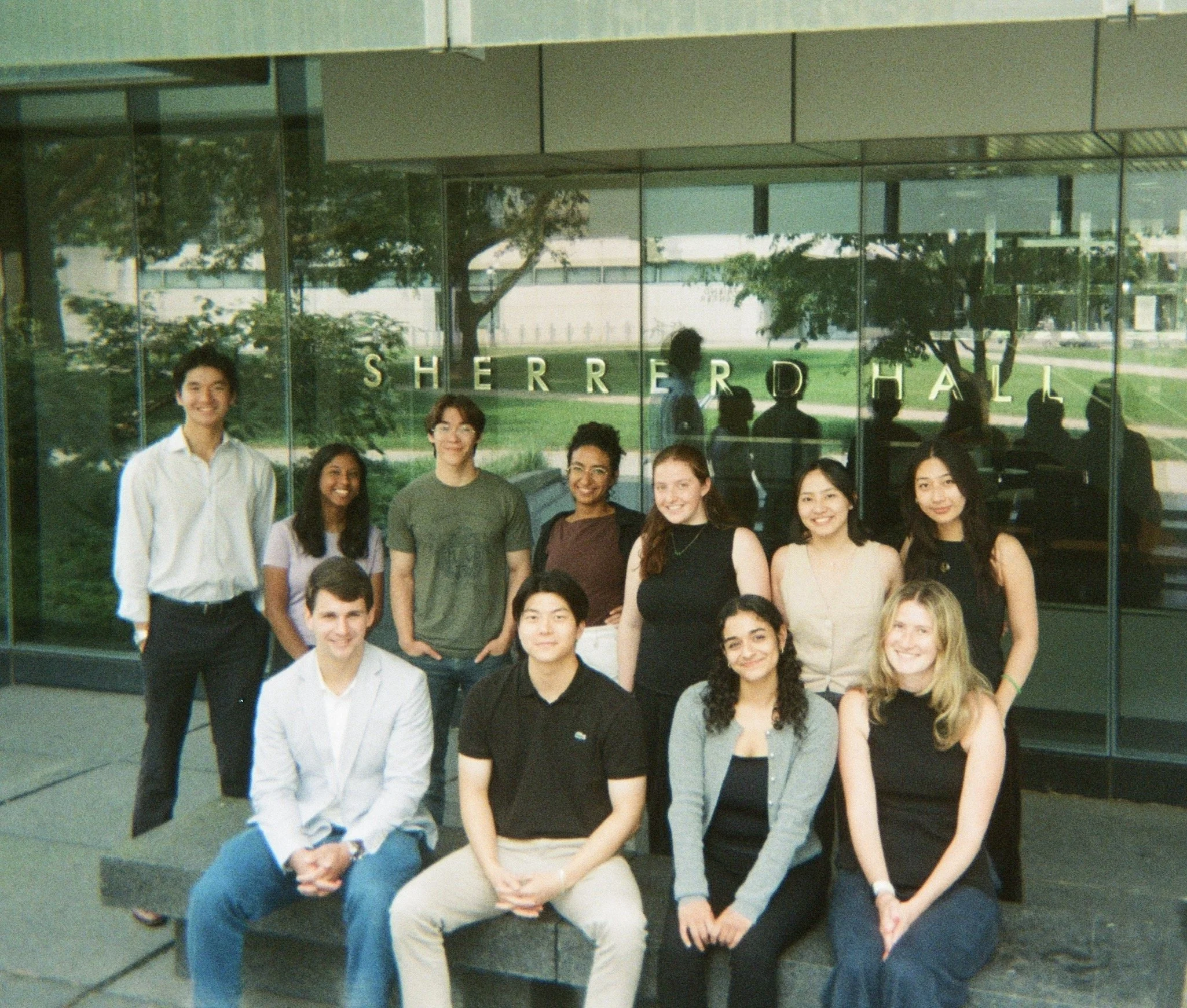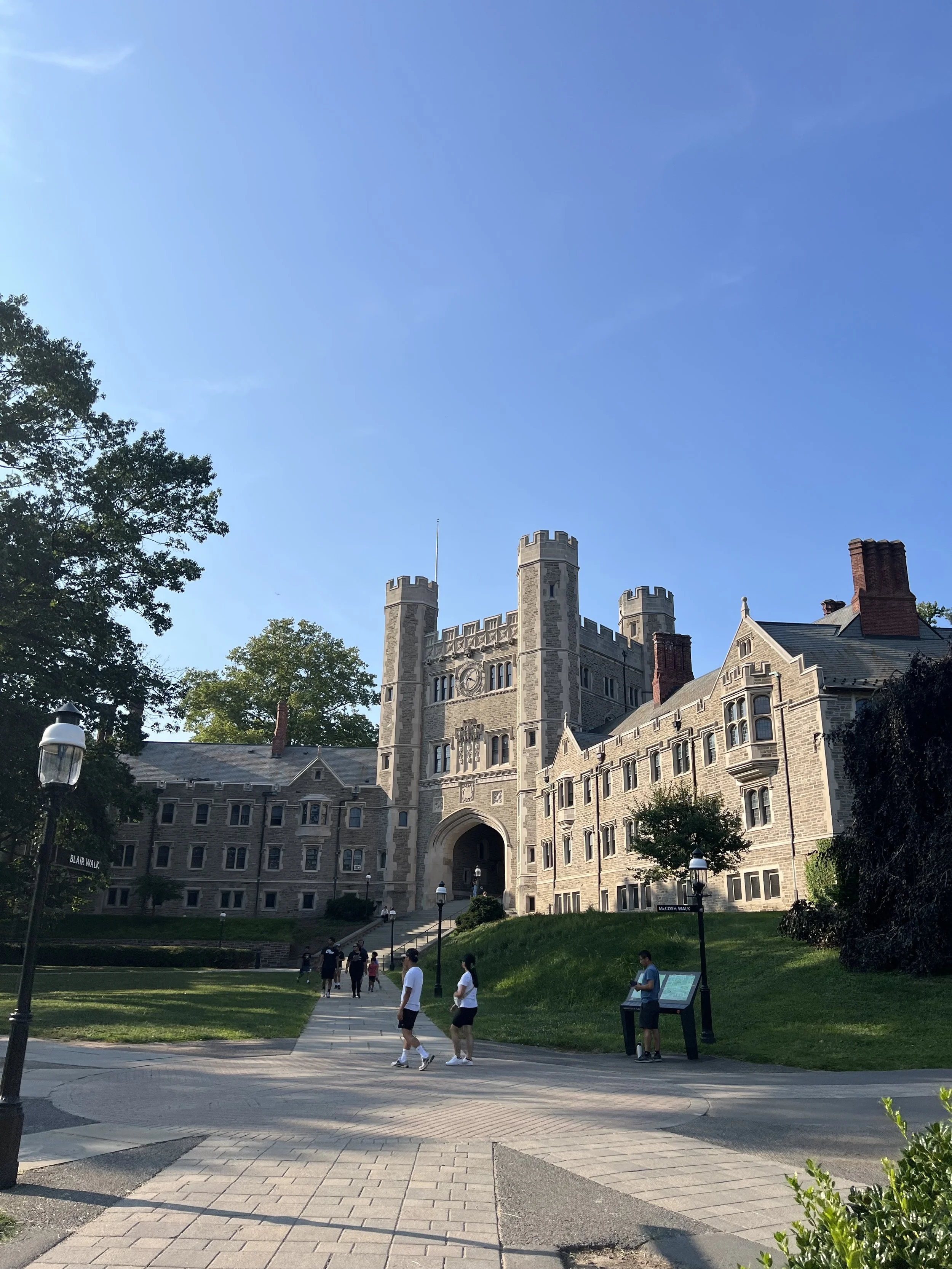Looking Back: Summer ‘25 in Washington D.C.
As the air outside becomes crisp and the leaves around campus turn amber, I finally accept that summer has come to an end.
The other day, I caught up with my summer housemates, relishing the moments we shared from May to August: moving into our quaint townhouse in Georgetown, exploring the Smithsonian museums, bar hopping in Adams Morgan, and creating (hopefully) lifelong friendships. Without a doubt, this past summer has been the most exciting, eventful time of my life.
Through the Siegel Public Interest Technology Summer Fellowship — a program within Princeton University’s Center for Information Technology Policy — I spent 8 weeks interning at the Office of the Attorney General for the District of Columbia. I was nicknamed a “tech intern” around the Division of Public Advocacy and floated around 3 main sections: the Antitrust and Nonprofit Enforcement Section, the Office of Consumer Protection, as well as the Workers’ Rights and Antifraud Section. One of the most unforgettable experiences I had took place on just my third day on the job. My co-intern and I were invited to accompany attorneys and economic consultants to a law firm downtown to review algorithmic source code for a major antitrust investigation.
My day-to-day tasks were less intense but just as meaningful. While the source code review was a high-stakes moment, the daily work showed me the breadth of public interest tech. From assisting the Workers’ Rights and Antifraud Section with damage calculations for wage theft investigations to helping the Office of Consumer Protection analyze data trends, I was applying my technical skills to directly impact residents' lives. Beyond the office, I had many opportunities to connect with my colleagues during happy hours and even at a Nats game!
The video below was posted on Instagram (@dcattorneygeneral) on 7/23:
At the end of June, I attended the American Enterprise Institute’s (AEI) Summer Honors Program. I was selected for an intensive, week-long seminar on constitutional law led by Professor John Yoo of UC Berkeley. Our cohort consisted of around a dozen students from a range of academic backgrounds, and the program was conducted in a Socratic seminar format. We spent every morning learning about the foundation of America, debating the historical basis and modern application of originalism, a lens through which many legal scholars evaluate the Constitution. Originalism, unlike textualism, attempts to understand the Constitution based on the meaning its words had to the people who wrote and ratified it, rather than focusing on the literal meaning of the text.
I'll be honest: it was not my usual crowd. As a STEM student who grew up mostly outside of the U.S., I found myself in a room with peers whose ideological starting points were very different from my own. But this intellectual discomfort was exactly what made the experience so valuable, in retrospect. It was an "away game" — a place where I couldn't just nod along in an echo chamber. When you are one of the few people in the room challenging a premise, you learn very quickly how to articulate your own positions with precision while maintaining respect. Although I still don’t agree with some of Professor Yoo’s perspectives, I left that week with a clearer understanding of my own views and, just as importantly, a much deeper appreciation for the necessity of engaging in good faith with those who see the world differently.
Throughout the summer, I’d hop on weekly calls through the Siegel Fellowship, connecting with researchers, practitioners, and professors in technology policy. My favorite guest speaker was Arvind Narayanan, author of AI Snake Oil. In light of the Trump Administration’s AI Action Plan (which was released earlier that day), I asked him for his thoughts on the balance between accelerating innovation and establishing concrete guardrails needed to protect the public from algorithmic harm.
After moving out of D.C., I headed up to Princeton for a wrap-up symposium that spanned three days. It was the perfect capstone to the summer, bringing all the fellows together to share our experiences from our respective host organizations while reflecting on the future of public interest technology. Being able to meet everyone in person was the true highlight, as it solidified the bonds we'd formed online.









